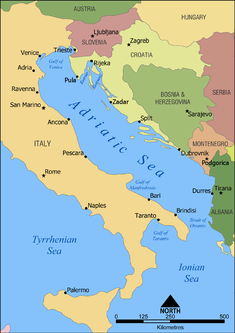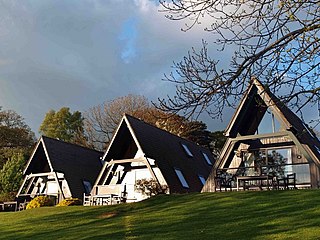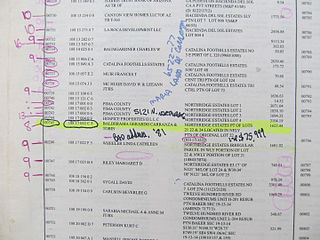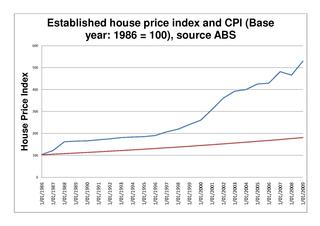This article may be confusing or unclear to readers.(July 2019) (Learn how and when to remove this template message) |
On May 21, 2006, the majority of 55.53% voted in a referendum for Montenegro as an independent state. The Government of the country declared its intentions to join EU and NATO. Shortly after that it became a 192nd member of United Nations in July 2006. In the press release of 29 June the Government “emphasized the readiness and determination to build its development policy on the United Nations’ principles and make an active contribution towards achieving the goals and universal values advocated by the UN”. [1] But the process of integration into European community and economic development began in 1991 when Montenegro proclaimed to be ecological state and thus created favorable tourist conditions and attractive property investment opportunities. The country's Ministry of Tourism and Environment Protection in 2001 unveiled the Tourism Master Plan, a blueprint for all tourism planning and targets up to 2020. In April 2003 Montenegro joined the Council of Europe. According to World Travel & Tourism Council report the Government of Montenegro is successfully implementing the plan and “have adopted most of the recommendations put forward by WTTC in its 2004 Country Report - exceeding both the forecasts and goals that were set”. [2]

Montenegro, officially known until 2007 as the Republic of Montenegro is a country in Southeast Europe on the Adriatic Sea. It borders Bosnia and Herzegovina to the northwest; Serbia and Kosovo to the east, Albania to the south and Croatia to the west. Montenegro has an area of 13,812 square kilometres and a population of 620,079. Its capital Podgorica is one of the twenty-three municipalities in the country. Cetinje is designated as the Old Royal Capital.

The North Atlantic Treaty Organization, also called the North Atlantic Alliance, is an intergovernmental military alliance between 29 North American and European countries. The organization implements the North Atlantic Treaty that was signed on 4 April 1949. NATO constitutes a system of collective defence whereby its independent member states agree to mutual defence in response to an attack by any external party. NATO's Headquarters are located in Haren, Brussels, Belgium, while the headquarters of Allied Command Operations is near Mons, Belgium.

The United Nations (UN) is an intergovernmental organization tasked with maintaining international peace and security, developing friendly relations among nations, achieving international co-operation, and being a centre for harmonizing the actions of nations. It was established after World War II, with the aim of preventing future wars, and succeeded the ineffective League of Nations. Its headquarters, which are subject to extraterritoriality, are in Manhattan, New York City, and it has other main offices in Geneva, Nairobi, Vienna and The Hague. The organization is financed by assessed and voluntary contributions from its member states. Its objectives include maintaining international peace and security, protecting human rights, delivering humanitarian aid, promoting sustainable development, and upholding international law. The UN is the largest, most familiar, most internationally represented and most powerful intergovernmental organization in the world. At its founding, the UN had 51 member states; there are now 193.
Contents
- Montenegro real estate regulations development
- Property purchase procedure, taxes and related fees
- See also
- References
- External links
Situated at the shore of Adriatic Sea Montenegro has 117 unique sandy and pebble beaches. UNESCO-protected bay of Kotor and the Tara canyon are of particular value, which enables Montenegro to achieve such success in tourist and property market over the last decade. There are four national parks, which are the most attractive and ecologically best preserved nature reserves (Durmitor, Biogradska gora, Lake Skadar, and Lovcen). The intentions are to establish two more.

The Adriatic Sea is a body of water separating the Italian Peninsula from the Balkan peninsula. The Adriatic is the northernmost arm of the Mediterranean Sea, extending from the Strait of Otranto to the northwest and the Po Valley. The countries with coasts on the Adriatic are Albania, Bosnia and Herzegovina, Croatia, Italy, Montenegro and Slovenia. The Adriatic contains over 1,300 islands, mostly located along the Croatian part of its eastern coast. It is divided into three basins, the northern being the shallowest and the southern being the deepest, with a maximum depth of 1,233 metres (4,045 ft). The Otranto Sill, an underwater ridge, is located at the border between the Adriatic and Ionian Seas. The prevailing currents flow counterclockwise from the Strait of Otranto, along the eastern coast and back to the strait along the western (Italian) coast. Tidal movements in the Adriatic are slight, although larger amplitudes are known to occur occasionally. The Adriatic's salinity is lower than the Mediterranean's because the Adriatic collects a third of the fresh water flowing into the Mediterranean, acting as a dilution basin. The surface water temperatures generally range from 30 °C (86 °F) in summer to 12 °C (54 °F) in winter, significantly moderating the Adriatic Basin's climate.

The United Nations Educational, Scientific and Cultural Organization is a specialized agency of the United Nations (UN) based in Paris, France. Its declared purpose is to contribute to promoting international collaboration in education, sciences, and culture in order to increase universal respect for justice, the rule of law, and human rights along with fundamental freedom proclaimed in the United Nations Charter. It is the successor of the League of Nations' International Committee on Intellectual Cooperation.

Kotor is a coastal town in Montenegro. It is located in a secluded part of the Gulf of Kotor. The city has a population of 13,510 and is the administrative center of Kotor Municipality.








